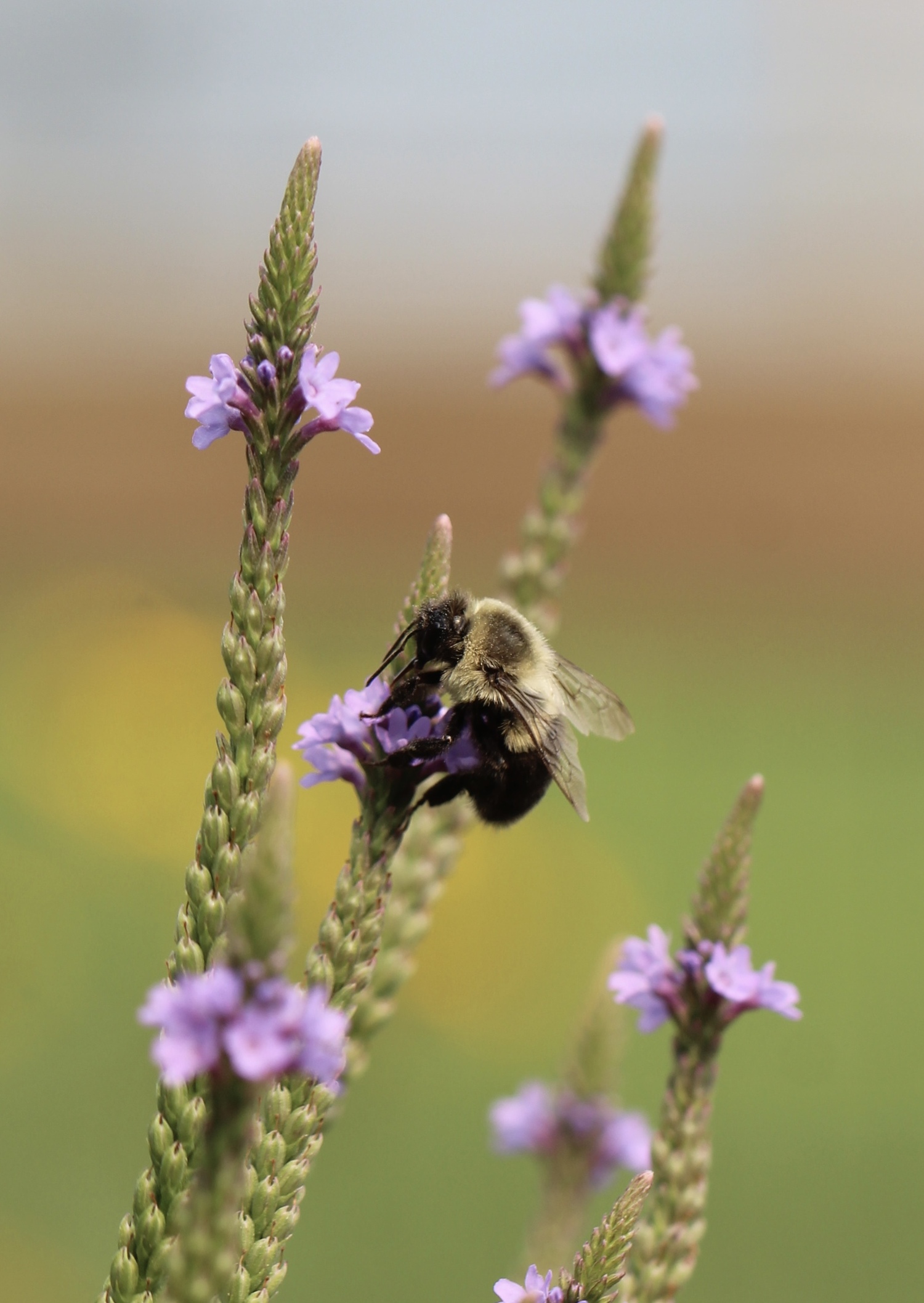
April is Native Plant Month in New York State. You may be wondering why gardening, environmental and other organizations are making such a big deal about native plants. A native plant is a plant species that naturally occurs and has evolved in a specific region or ecosystem, having adapted to the local climate, soil and wildlife over time.
Native plants are often the only plant for hosting or feeding pollinating insects and butterflies that are increasingly endangered. And they act as “keystone plants” for a healthy environment by providing food, shelter and resources crucial for the survival of insects, animals and other plants. Here’s how.
Bees are the primary source of pollination for the food crops we eat as well as the flowers we enjoy. Bees are often referred to as the “queens of pollination.” We have over 4,000 species of bees throughout the United States, with over 500 in New York State and many on Long Island. You may be surprised to know that we typically have over 100 species visiting our gardens, and most of those are native bees, not “farmed” bees. They not only visit flowers to retrieve nectar, they also collect pollen as a food source. Unique structures on bees enable them to spread pollen to other flowers, resulting in pollination. Bees have co-evolved over thousands of years with native plants that are key sources of nectar and pollen. They’ll visit nonnative plants, but it makes sense to include natives for their banquets in our gardens. Different bees are attracted to different colors, so it is best to plant a wide variety with different colors. Plant for bees and other pollinators will follow!
Butterflies and moths are other favorite pollinators. A recent study found that between 2000 and 2020, the United States lost 22 percent of our butterflies, with even common species experiencing declines. Many of us are aware of the plight of monarchs and the role that common milkweed, a native plant, plays in their survival, as milkweed is the only host plant they use for laying eggs and nurturing their caterpillars. Researchers believe that climate change, habitat loss and use of insecticides are probably responsible. How can we help? A key action for gardeners is to provide lots of flowering plants that will provide plenty of nectar. Butterflies look for big, colorful flowers — clear signs of having nectar and pollen. Many butterflies have co-evolved with flowering native plants, so it makes sense to provide natives that flower throughout the season, from early spring to late autumn, as well as other pollinator-friendly plants.
In addition to supporting key pollinator insects and birds, native plants help to provide healthy ecosystems because they’re adapted to our local climates and soil conditions. They often require less water and fertilizer than nonnative plant species. Because they are adapted to our conditions, they help to prevent soil erosion and help to filter pollutants from stormwater runoff, improving water quality. This is especially important to the aquifer that underlies our communities on Long Island.
However, development and the selection of plants for decorative beauty rather than protecting the environment has decimated the number of native plants available to wildlife. That’s why their use now is such a big deal, and of course you will want to help — here’s how.
Planting natives is not an “all or nothing” proposition. If you don’t have any, add a few to your garden or decorative containers. Some people mistakenly believe that advocates for natives want you to rip out your beloved exotics such as peonies and dahlias. Not so! As nonnative plants fail or become less appealing, replace them with natives. Over time, you’ll be able to balance the exotic plants that are also pollinator-friendly with natives. Or you can start a small new garden on your property, planted with natives only. You can balance the need for beauty with the opportunity to provide sustenance. What may surprise you is the fact that many native flowering plants are beautiful and will appeal to people as well as pollinators.
Here’s a short list of natives (all perennials) to get you started that are now widely available in Long Island nurseries and garden centers and at plant sales.
Join the Big Deal!
Here’s a short list of natives (all perennials) to get you started that are now widely available in Long Island nurseries and garden centers and at plant sales.
Purple coneflower (Echinacea purpurea)
Anise hyssop (Agastache foeniculum)
Common milkweed (Aesclepias syriaca species)
Goldenrod (Solidago species)
New England aster (Symphyotrichum species)
Yarrow (Achillea millefolium)
Columbine (Aquilegia canadensis)
Tickseed (Coreopsis)
Alicia Whitaker is the president of the Westhampton Garden Club.